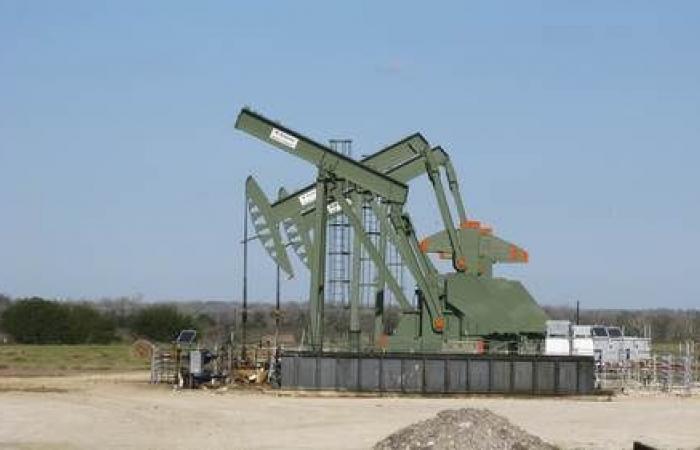Washington (awp/afp) – Oil prices rose on Thursday, pushed by the cold snap in the United States, but somewhat contained by the state of American stocks and worrying Chinese inflation.
The price of a barrel of Brent from the North Sea, for delivery in March, gained 1% to $76.92.
Its American equivalent, a barrel of West Texas Intermediate, for delivery in February, increased by 0.82% to $73.92.
The market experienced “a rebound after the fall (in prices) the day before,” John Kilduff of Again Capital observed to AFP.
Operators are “focusing on demand” for “heating fuels”, while a cold snap is raging in the United States, according to the analyst.
A dangerous winter storm began sweeping across the central and eastern United States on Sunday, killing at least five people, causing hundreds of flight cancellations and leaving behind freezing temperatures.
In addition, “heavy snowfall, freezing rain and sleet” are expected “in the South (of the country) over the next few days,” according to the American weather service, the NWS.
These weather forecasts pushed up American natural gas, which rose 1.86%, to $3.72 per million British thermal units (BTU), the Anglo-Saxon benchmark on this market.
“Natural gas prices are reaching a level” which makes the switch to alternative energy sources, notably domestic fuel oil, “attractive in terms of price”, argued Mr. Kilduff.
“This therefore has an impact on the price of crude oil, and helps to support the sector,” he summarized.
This cold snap also “increased the risk of frost in production areas”, commented John Plassard, from Mirabaud.
Crude prices are, however, contained by “surprisingly high US stocks”, observed Energi Danmark analysts.
For the week ending January 3, the American Energy Information Agency (EIA) reported commercial crude reserves decreasing by 959,000 barrels, where analysts were counting on a more marked drop of two million, according to the median of a consensus established by the Bloomberg agency.
Gasoline stocks increased by 6.3 million barrels over the same period.
Furthermore, China, whose demand for crude is essential for the market, for its part narrowly avoided deflation in December, with an increase of only 0.1% year-on-year in consumer prices.
Published on Thursday, these official data “constitute a setback for the government” of the world’s second largest economy, “which seeks to stimulate demand through recovery measures”, deplore DNB analysts.
afp/rp






